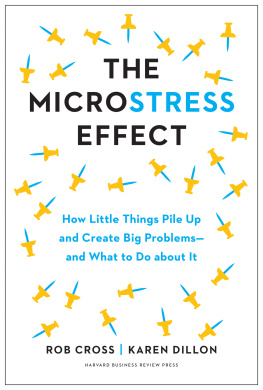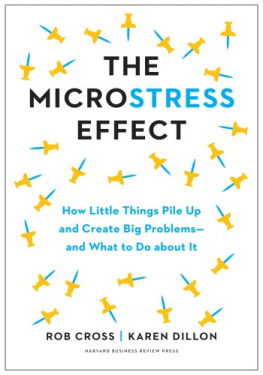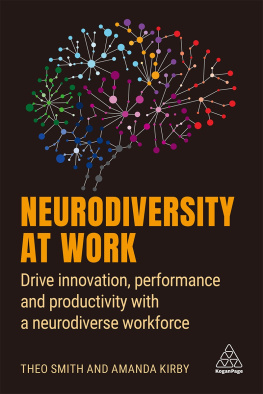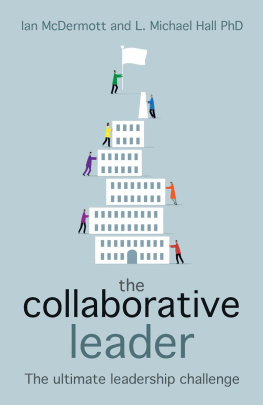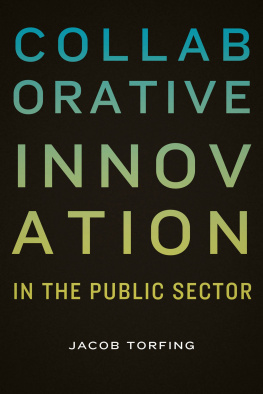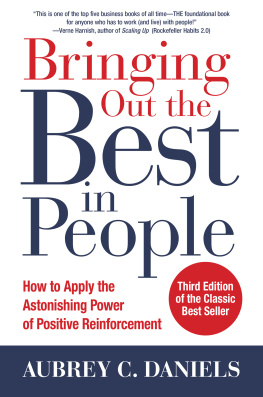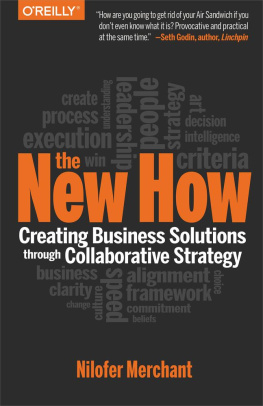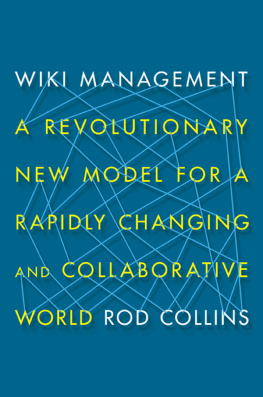Rob Cross - Beyond Collaboration Overload: How to Work Smarter, Get Ahead, and Restore Your Well-Being
Here you can read online Rob Cross - Beyond Collaboration Overload: How to Work Smarter, Get Ahead, and Restore Your Well-Being full text of the book (entire story) in english for free. Download pdf and epub, get meaning, cover and reviews about this ebook. year: 2021, publisher: Harvard Business Review Press, genre: Politics. Description of the work, (preface) as well as reviews are available. Best literature library LitArk.com created for fans of good reading and offers a wide selection of genres:
Romance novel
Science fiction
Adventure
Detective
Science
History
Home and family
Prose
Art
Politics
Computer
Non-fiction
Religion
Business
Children
Humor
Choose a favorite category and find really read worthwhile books. Enjoy immersion in the world of imagination, feel the emotions of the characters or learn something new for yourself, make an fascinating discovery.
Beyond Collaboration Overload: How to Work Smarter, Get Ahead, and Restore Your Well-Being: summary, description and annotation
We offer to read an annotation, description, summary or preface (depends on what the author of the book "Beyond Collaboration Overload: How to Work Smarter, Get Ahead, and Restore Your Well-Being" wrote himself). If you haven't found the necessary information about the book — write in the comments, we will try to find it.
Named the Best Management Book of 2021 by strategy+business
Named one of this months top titles in the Financial Times in September 2021
Named to the longlist for the 2021 Outstanding Works of Literature (OWL) Award in the Management & Culture category
A plan for conquering collaborative overload to drive performance and innovation, reduce burnout, and enhance well-being.
Most organizations have created always-on work contexts that are burning people out and hurting performance rather than delivering productivity, innovation and engagement. Collaborative work consumes 85% of employees time and is drifting earlier into the morning, later into the night, and deeper into the weekend.
The dilemma is that we all need to collaborate more to create effective organizations and vibrant careers for ourselves. But conventional wisdom on teamwork and collaboration has created too much of the wrong kind of collaboration, which hurts our performance, health and overall well-being.
In Beyond Collaboration Overload, Babson professor Rob Cross solves this paradox by showing how top performers who thrive at work collaborate in a more purposeful way that makes them 18-24% more efficient than their peers. Good collaborators are distinguished by the efficiency and intentionality of their collaborationnot the size of their network or the length of their workday.
Through landmark research with more than 300 organizations, in-depth stories, and tools, Beyond Collaboration Overload will coach you to reclaim close to a day a week when you:
It then outlines how successful people invest this reclaimed time to:
Cross framework provides relief from the definitive problem of our agedysfunctional collaboration at the expense of our performance, health and overall well-being.
|Named the Best Management Book of 2021 by strategy+business
Named one of this months top titles in the Financial Times in September 2021
Named to the shortlist for the 2021 Outstanding Works of Literature (OWL) Award in the Management & Culture Category
A plan for conquering collaborative overload to drive performance and innovation, reduce burnout, and enhance well-being.
Most organizations have created always-on work contexts that are burning people out and hurting performance rather than delivering productivity, innovation and engagement. Collaborative work consumes 85% of employees time and is drifting earlier into the morning, later into the night, and deeper into the weekend.
The dilemma is that we all need to collaborate more to create effective organizations and vibrant careers for ourselves. But conventional wisdom on teamwork and collaboration has created too much of the wrong kind of collaboration, which hurts our performance, health and overall well-being.
In Beyond Collaboration Overload, Babson professor Rob Cross solves this paradox by showing how top performers who thrive at work collaborate in a more...
Rob Cross: author's other books
Who wrote Beyond Collaboration Overload: How to Work Smarter, Get Ahead, and Restore Your Well-Being? Find out the surname, the name of the author of the book and a list of all author's works by series.


